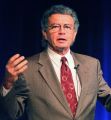Storm Cunningham coined the term “Restorative Development” in his 2002 book, “The Restoration Economy”

“For the past 20 years, the focus of my work has been on bringing places back to life. I am always looking for commonalities – the factors that are present in the successes, or missing in the failures. Some issues seem to be fairly universal. Water is one them. The universality of water is apparent in the way that people renew their water, repurpose their waterfront, or reconnect to the water.”Water is a kind of magic revitalizer,” stated Storm Cunningham.










